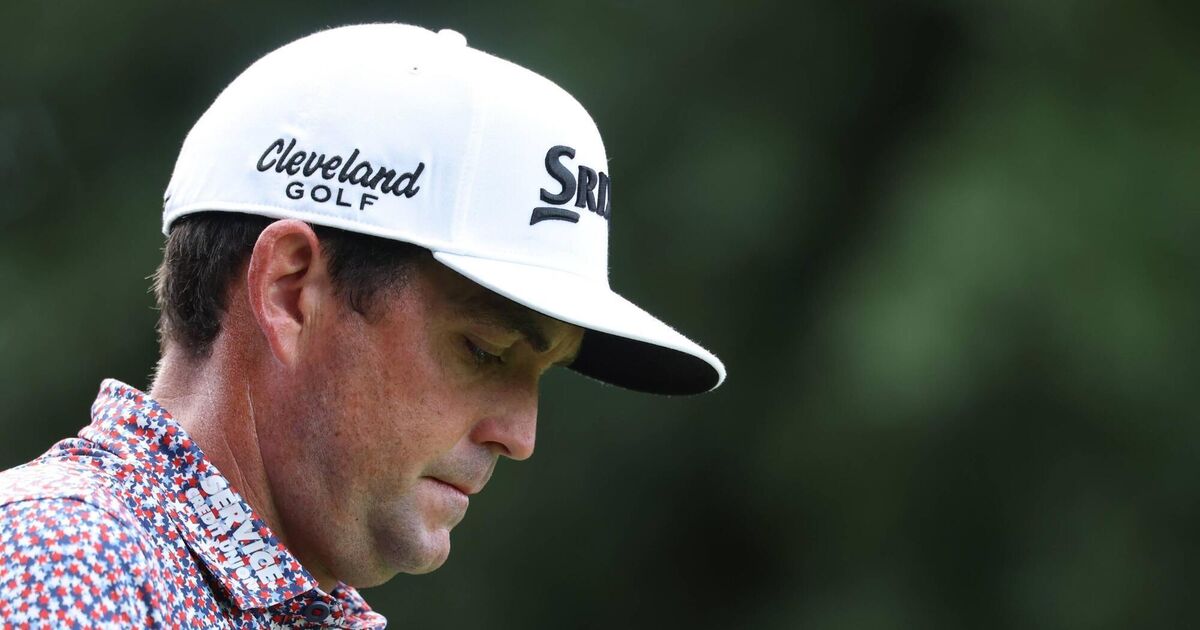Six players have qualified automatically to represent the US in New York next month: Scottie Scheffler, Xander Schauffele, JJ Spaun, Russell Henley, Harris English and Bryson DeChambeau. Keegan Bradley will name his half‑dozen wildcards on Wednesday. These announcements are ordinarily mundane; this one will be far from that.
Justin Thomas and Collin Morikawa are certainties to be involved. Patrick Cantlay, who was central to so much drama in Rome two years ago, is also likely to get the nod. The remaining three spots realistically appear to be between four names: Cameron Young, Ben Griffin, Sam Burns and Bradley himself.
Of those, Young and Burns are most hotly tipped to make the US team. Bradley added a layer of intrigue on Sunday by stating: “There’s probably going to be a few guys that think they are going to be on the team that aren’t going to be.”
Why is Bradley’s decision so significant?
There has been no playing captain in the Ryder Cup since 1963 and back then Arnold Palmer did not have to pick himself. Bradley has clearly agonised over this decision, describing it as “defining” and “the biggest of my life”.
Bradley regards himself as one of the finest players in the game and there is logic behind that. He is ranked 11 in the world and eighth among Americans. However, the scale of duties associated with captaining a modern Ryder Cup team mean many regard the concept of combining this with playing to be nonsensical. Should Bradley play and the US fall to a rare home defeat, inevitably he will be criticised for being self-indulgent. If Bradley stays on the sidelines and the same result plays out, fans will ask why he did not help the team inside the ropes where he is most accustomed.
There are subplots; Bradley was hugely upset not to receive a pick for the last Ryder Cup team. US players will receive $500,000 each for participation at Bethpage, $300,000 of which must be directed towards charity. While it is easy to say money does not matter in this context, that contradicts the fact those players lobbied for the payment in the first place.
What is the case for not playing?
The mood music at East Lake and the Tour Championship early last week suggested this would be Bradley’s decision, owing to a growing understanding of how much time and energy his captaincy will take up. However, the 39-year-old duly produced his best form in weeks, including rounds of 64 and 63, to tie seventh. Taken at face value, Bradley is in a quandary over what to do.
Griffin would be a Ryder Cup rookie but posted top-10 finishes in two of 2025’s majors. He won twice on the PGA Tour in spring. Bradley can reasonably say there is sufficient depth elsewhere on the American side that he needn’t become the focus of attention with a dual role. There would also be no risk of “we told you so” as the prime criticism if the Ryder Cup goes wrong for the hosts.
And what is the case for playing?
Maybe the role of the Ryder Cup captain is overstated. It feels quite feasible, for example, that Bradley could use the Friday and Saturday mornings to make decisions (albeit most of them are made before a ball is struck anyway) before taking to the course in the afternoon sessions. His commitments would also be shared between a batch of vice‑captains. One of them, Jim Furyk, has previously captained Ryder Cup and Presidents Cup teams.
Several players in the US team clearly want Bradley to tee up alongside them. How influential those voices are remains to be seen. In the past year Bradley has played some of the finest golf of his life, as epitomised by seeing off Tommy Fleetwood and Henley to win the Travelers Championship in June.
This will not be Bradley’s concern but a playing captain, such a rarity, would add a gloriously intriguing storyline to Ryder Cup week.
How are the European team placed in comparison?
In a much more settled state. Rory McIlroy, Bob MacIntyre, Justin Rose, Tommy Fleetwood, Rasmus Højgaard and Tyrrell Hatton are automatic qualifiers. Fleetwood is in the form of his life and ended his wait for a win on the PGA Tour on Sunday.
Every expectation is that the captain, Luke Donald, will apply continuity when making his picks next Monday. Shane Lowry, Sepp Straka, Ludvig Åberg, Viktor Hovland, Matt Fitzpatrick and Jon Rahm are likely to get the nod. It will therefore be one change and a quirkish one at that from the team who defeated the US in Rome: Rasmus Højgaard replacing his twin brother, Nicolai.
Alex Norén’s win at the British Masters following an injury‑disrupted spell did raise some eyebrows, the Swede forming part of Europe’s winning team in 2018. However, it will be a shock if Donald does not stick to the obvious names.
Guardian






